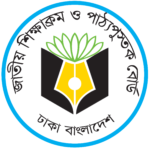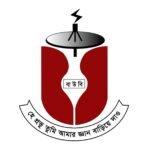Education is a cornerstone of any society’s progress and development. In Bangladesh, a densely populated country in South Asia, education has been a key focus area for the government to empower its citizens and foster economic growth. Over the years, the education system in Bangladesh has undergone several transformations to address changing needs, challenges, and aspirations. This article provides a comprehensive overview of the education curriculums in Bangladesh, examining its structure, challenges, and recent reforms.

Education in Bangladesh
Bangladesh’s education system follows a 5-3-2-2 structure, consisting of primary, secondary, higher secondary, and tertiary levels. The government places significant emphasis on education, and free and compulsory primary education is enshrined in the constitution.
1. Primary Education Curriculum
Primary education in Bangladesh spans grades 1 to 5 and is typically provided in government-run primary schools. The primary education curriculum emphasizes foundational subjects such as Bangla (the national language), English, mathematics, and social studies. Additionally, subjects like science, arts, physical education, and religious studies are included.
The primary education curriculum aims to lay a strong educational foundation, develop critical thinking skills, and foster creativity and ethical values in students. To achieve this, the curriculum incorporates interactive teaching methods, activity-based learning, and student-centered approaches.
2. Secondary Education Curriculum
Secondary education in Bangladesh covers grades 6 to 10. Students have the option to attend either government-run secondary schools or private schools. The secondary education curriculum builds upon the foundational subjects taught at the primary level and introduces additional subjects like physics, chemistry, biology, geography, history, and economics.
At the secondary level, the focus shifts from rote memorization to promoting analytical thinking, problem-solving, and research skills. The curriculum encourages students to explore different subject areas and make informed decisions about their academic and career paths.
3. Higher Secondary Education Curriculum
Higher secondary education spans grades 11 and 12, where students are required to choose specific subject streams. The primary streams offered are science, arts, and commerce. Students in the science stream typically study subjects like physics, chemistry, biology, and mathematics. Arts students may choose from subjects such as literature, history, and geography, while commerce students study economics, accounting, and business studies.
The higher secondary education curriculum prepares students for the public examination known as the Higher Secondary Certificate (HSC) examination. The results of this examination are crucial in determining admission to universities and other higher education institutions.
4. Tertiary Education Curriculum
Tertiary education in Bangladesh consists of undergraduate and postgraduate levels. Universities, colleges, and specialized institutions offer a diverse range of programs across various disciplines, including humanities, sciences, engineering, medicine, and social sciences.
The curriculum at the tertiary level is more specialized and research-oriented. It encourages critical thinking, independent learning, and the development of expertise in specific fields. Tertiary education aims to produce skilled professionals and researchers who can contribute to the nation’s development and address global challenges.
Challenges and Reforms in Bangladesh’s Education Curriculums
While Bangladesh has made significant strides in expanding access to education, several challenges persist in its education system. Some of the key challenges include:
- Quality of Education: Ensuring quality education at all levels remains a challenge. The focus on rote memorization and examination-centric approaches hinders critical thinking and creativity among students.
- Teacher Training: Teacher quality and training are critical factors in delivering effective education. Ongoing professional development and support for teachers are essential to enhance teaching methodologies and student outcomes.
- Access to Education: Despite progress, access to education remains unequal, especially in rural and remote areas. Efforts are needed to reduce disparities and ensure that all children have equal opportunities to access education.
- Gender Disparities: Gender disparities in education persist, particularly in rural areas. Girls often face cultural and economic barriers to education, and efforts are required to promote gender equality in education.
- Curriculum Relevance: The curriculum must remain relevant to the changing needs of society and the job market. It should equip students with skills and knowledge that align with emerging industries and global trends.
Recent Reforms
To address these challenges, Bangladesh has undertaken various reforms to improve its education system:
- National Education Policy (NEP) 2010: The NEP 2010 introduced significant reforms, including changes to the primary and secondary education curriculums to promote critical thinking, creativity, and values-based education.
- ICT Integration: The government has emphasized integrating information and communication technology (ICT) into education to enhance teaching and learning processes.
- Vocational Education: There is a growing focus on vocational and technical education to equip students with practical skills that meet the demands of the job market.
- Inclusive Education: Efforts are being made to make education more inclusive for children with disabilities and those from marginalized communities.
- Digitalization of Textbooks: The government has introduced digital textbooks in schools to reduce the burden of carrying heavy bags and promote e-learning.

National Curriculum and Textbook Board:
The National Curriculum and Textbook Board (NCTB) is a governmental organization in Bangladesh responsible for the development of curriculum and the approval of textbooks for primary, junior, secondary, and higher secondary level schools of the country.
The NCTB was established under the National Education Policy of 1979, and since then it has been playing a vital role in the educational development of Bangladesh. It aims to enhance the quality of education through the provision of effective learning materials and curricula that are consistent with the country’s social, cultural, and national objectives.
The responsibilities of the NCTB include:
- Designing and developing curriculum as per national education policy and goals.
- Selecting, developing, and approving textbooks for schools and madrasas.
- Printing and distributing approved textbooks to educational institutions across the country.
- Evaluating and upgrading curricula and textbooks as needed, based on feedback and evolving educational standards.
As of my knowledge cutoff in September 2021, the NCTB plays a critical role in determining the academic content that is taught in Bangladesh’s schools. For updates or changes after this date, I would recommend looking up the latest information.

The Secondary School Certificate (SSC):
The Higher Secondary School Certificate (HSC):
Bangladesh Open University (BOU):
The Bangladesh Open University (BOU) is a public university in Bangladesh, and it’s one of the largest universities in the world in terms of enrollment. It was established on October 21, 1992, with the aim of making education accessible to all, especially for those who cannot enroll in traditional educational institutions due to financial, geographical, or other limitations.
The BOU offers various programs of study including formal and non-formal courses. Its formal education system includes undergraduate, post-graduate, and diploma programs across diverse fields. The non-formal education programs, on the other hand, include basic literacy and continuing education, vocational education, health and nutrition, agriculture, and other community-oriented courses.
The BOU employs a variety of delivery methods to ensure education is available to a wide audience, including print materials, television and radio broadcasts, online courses, and tutorials. Courses are typically self-paced, allowing students to complete their studies according to their own schedule. This is particularly useful for working professionals and other individuals who have commitments that may make traditional class schedules impractical.
The university operates through a system of regional resource centers (RRCs), sub-regional centers (SRCs), and study centers scattered across the country to facilitate the educational process for its students.
As of my knowledge cutoff in September 2021, the Bangladesh Open University continues to provide flexible, accessible, and affordable education opportunities for people across the nation. For any updates or changes after this time, please refer to the latest sources.

Read more on : Bangladesh Open University (BOU): A Beacon of Lifelong Learning and Inclusivity
Open School (OS):
Secondary School Certificate (SSC):
Higher Secondary Certificate (HSC):
Bachelor of Business Studies(BBS):
Bachelor of Business Administration(BBA), Bangla Medium
School of Agriculture and Rural Development (SARD)
Bachelor of Agriculture Education (B.Ag.Ed)
- BUB BAE 2207 English – Oral Communication and Study Skills
- BUB BAE 3205 English Reading and Writing Skills
School of Business (SOB)
Post-Graduate Diploma in Management (PGDM)
School of Education
Bachelor of Education (B.Ed)
- EDBN-1412 Teaching English
Certificate in Education (C.Ed)
EDC 2307 English
Social Science Humanities and Language
Bachelor of Arts & Bachelor of Social Science (BA & BSS)
- BEN-1301 – English Language Skills
Social Science Humanities and Language
Bachelor of Arts & Bachelor of Social Science (BA & BSS)
- BEN 1301 English Language Skills
The Bangladesh Technical Education Board (BTEB)
The Bangladesh Technical Education Board (BTEB) is a government board responsible for regulating, developing, and standardizing technical and vocational education in the secondary and post-secondary level in Bangladesh. BTEB is also responsible for the award of diplomas and certifications in technical education.
BTEB was established in 1967, and it functions under the Ministry of Education, Government of Bangladesh. Its major activities include:
- Development of curriculum for different courses related to vocational and technical education.
- Regulation and supervision of technical and vocational education institutions.
- Organization and conduction of examinations for vocational and technical education courses.
- Certification of graduates from technical and vocational institutions.
- Implementation of the National Skills Development Policy and the National Vocational Qualifications Framework (NVQF).
BTEB aims to ensure that the technical education sector produces a skilled and technically trained workforce that can contribute effectively to the national and international labor market.
As of my knowledge cutoff in September 2021, BTEB continues to play a significant role in advancing technical and vocational education in Bangladesh. For updates or changes after this date, I recommend checking the latest resources.
The National University of Bangladesh (NUB):
The National University of Bangladesh (NUB), established in 1992, is a parent university of Bangladesh aimed at imparting general and professional education to students through its affiliated colleges and professional institutions throughout the country. It is one of the largest universities in the world in terms of the number of registered students.
The university provides a broad range of programs from undergraduate to postgraduate levels. The undergraduate programs include Bachelor of Arts, Bachelor of Science, Bachelor of Commerce, and Bachelor of Business Administration. At the postgraduate level, it offers Masters of Arts, Masters of Science, Masters of Commerce, and Masters of Business Administration among others.
The National University conducts all admission processes, provides curricula, arranges examinations, and awards degrees to the students from the affiliated colleges and institutions. It also holds training programs for the teachers of affiliated colleges to improve the quality of education in the colleges.
NUB aims to provide quality education to the students, especially those from the rural areas and economically backward sections of the society, making higher education accessible to them.
As of my knowledge cutoff in September 2021, the National University continues to play a vital role in Bangladesh’s higher education sector. For any changes or updates after this time, please refer to the latest sources.